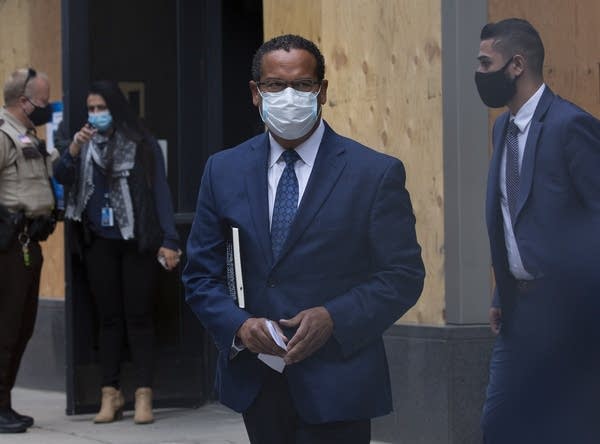AG Ellison: 'Nobody wants to push anybody to close'

Attorney General Keith Ellison walks out of the Family Justice Center to speak to the media Sept. 11 in downtown Minneapolis.
Christine T. Nguyen | MPR News file
Go Deeper.
Create an account or log in to save stories.
Like this?
Thanks for liking this story! We have added it to a list of your favorite stories.


